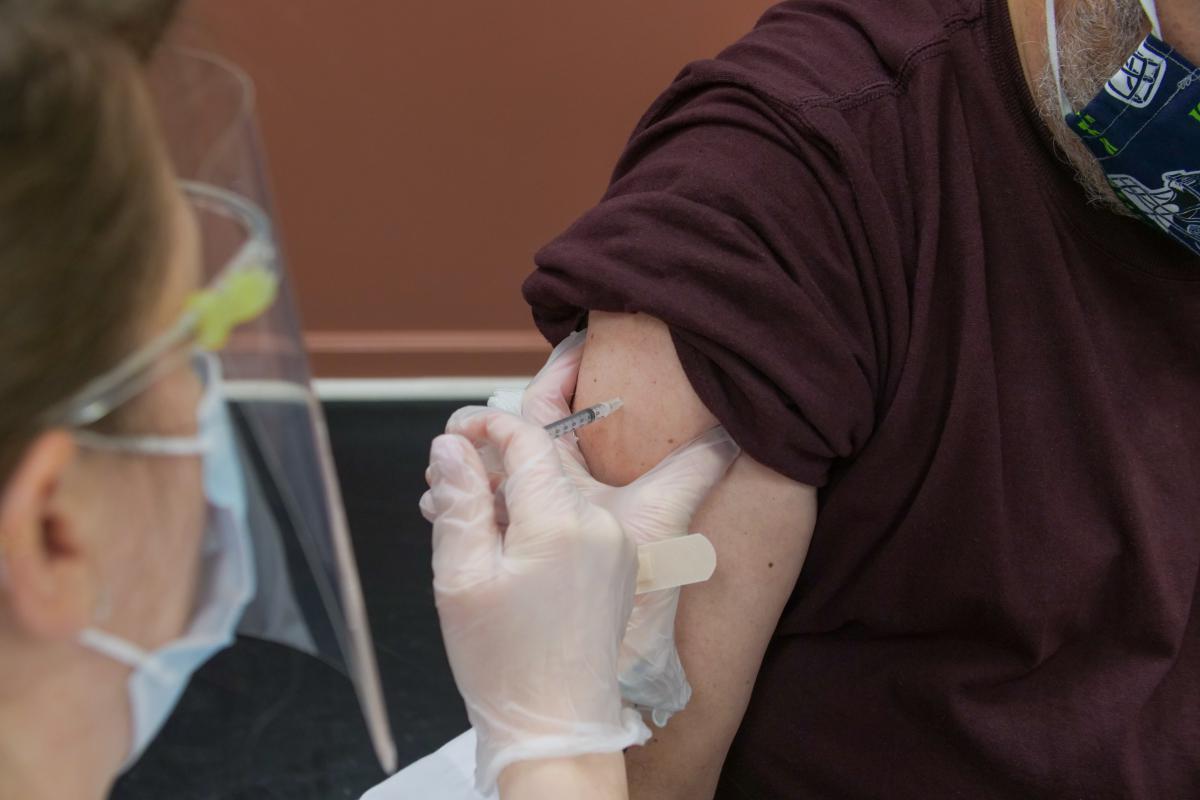 On December 16, 2020, the Equal Employment Opportunity Commission (EEOC) issued guidance to employers who choose to mandate COVID-19 vaccinations. An employer may encourage and perhaps require COVID-19 vaccinations but will need to take steps to ensure it remains in compliance with the Americans with Disability Act (ADA), Title VII of the Civil Rights Act of 1964 (Title VII), and Genetic Information Nondiscrimination Act (GINA).
On December 16, 2020, the Equal Employment Opportunity Commission (EEOC) issued guidance to employers who choose to mandate COVID-19 vaccinations. An employer may encourage and perhaps require COVID-19 vaccinations but will need to take steps to ensure it remains in compliance with the Americans with Disability Act (ADA), Title VII of the Civil Rights Act of 1964 (Title VII), and Genetic Information Nondiscrimination Act (GINA).
ADA
Under the ADA, an employer may have a policy that includes "a requirement that an individual shall not pose a direct threat to the health or safety of individuals in the workplace." In determining whether a direct threat exists, employers should consider the following factors:
- The duration of the risk;
- The nature and severity of the potential harm;
- The likelihood that the potential harm will occur; and
- The imminence of the potential harm.
If an employee cannot be vaccinated due to a disability and poses a direct threat in the workplace, the employer must provide a reasonable accommodation unless doing so would create an undue hardship (significant difficulty or expense) on the employer. The employer must engage in an interactive process to determine whether a reasonable accommodation can be made.
When no accommodation can be made to reduce the direct threat to an acceptable level, the employer can exclude the employee from physically entering the workplace. However, this does not mean that the employee can be automatically terminated.
The EEOC guidance also explains that pre-vaccination questions are likely to elicit information about a disability. Therefore, if an employer chooses to administer vaccinations, pre-vaccination screening questions must be job-related and consistent with a business necessity.
Title VII and Religious Accommodations
Title VII requires employers to provide religious accommodations to employees unless doing so would create an undue hardship. If an employer has notice that obtaining a vaccine would be against an employee’s sincerely held religious beliefs, the employer must provide a reasonable accommodation unless doing so would cause an undue hardship. Employers should ordinarily accept that an employee’s request for accommodation is based on sincerely held religious beliefs. However, an employer may ask for additional information if it has an objective basis for questioning the sincerity of an employee’s beliefs.
GINA
GINA prohibits employers from:
- Using genetic information to make decisions related to terms, conditions, and privileges of employment;
- Requiring genetic information except under six narrow exceptions; and
- Disclosing genetic information except under six narrow exceptions.
Like the ADA, employers who administer vaccines should be careful about asking pre-vaccination questions that could trigger GINA violations. If employers choose to require proof of vaccinations, they should include a warning to employees not to include any genetic information.
Encouraging Vaccinations
Rather than requiring employees to get the COVID-19 vaccine, employers may wish to develop programs to encourage them to do so. Here are some ideas for encouraging vaccination:
- Leading by example can communicate that leadership has made a choice to get vaccinated. This may help employees feel more comfortable and may ease anxieties about getting the vaccine.
- Develop education programs and provide information about the vaccine that is easily accessible to employees.
- Offer to cover the costs of the vaccine.
- Consider offering paid time off to get the vaccine and time to recover from any potential side effects.
Conclusion
Although employers may perhaps require employees to get COVID-19 vaccinations, it may be best to encourage vaccines. Requiring the vaccinations may trigger several legal implications and may create additional tension in the workplace. If employers choose to mandate vaccines, they will need to ensure compliance with the ADA, Title VII, and GINA.
For additional COVID-19 resources, click here.
